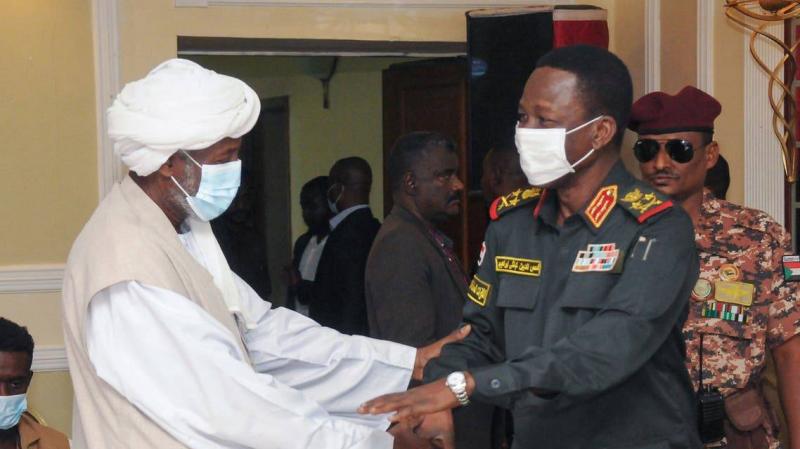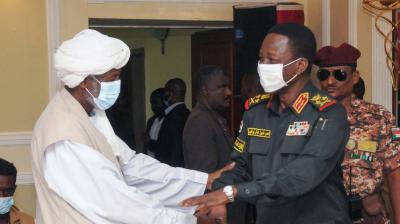After discussions with representatives of the Eastern Sudan movement, Khartoum announced the possibility of resuming oil exports from South Sudan via the Sudanese Bashayer port. This agreement came just hours after a ministerial delegation was sent to negotiate with protesters who had closed the port and the oil export and import routes in the country.
The Sovereign Council stated in a late-night statement last Sunday that Lieutenant General Shams الدين كباشي, a member of the Sovereign Council, chaired the joint meeting between the federal government delegation, the security committee of the Red Sea state, and the delegation of the Eastern Sudan Consultative Council headed by the chief elder Mohamed Amin Turk. It was agreed to allow the oil exports from South Sudan to pass through Bashayer port.
The government delegation also presented several proposals during the meeting to resolve the issue of Eastern Sudan, which included opening ports and the national road, as well as suggesting a comprehensive conference for the people of Eastern Sudan with binding outcomes for both the government and the people.
For his part, Turk confirmed the "initial acceptance of the proposals presented by the government delegation" and requested a "week's time to consult with the coordinating committees allied with the council that did not attend the meeting." The pipeline transporting oil from South Sudan extends from the capital Juba to the port of Port Sudan for export purposes. In return, Sudan benefits from collecting transit fees for the oil.
**A Political Matter**
Abdel Fattah al-Burhan, the chairman of the Sovereign Council, described the protests in the east of the country as "a political matter." In statements made yesterday, during the inauguration of a military hospital in Khartoum, he stated, "What is happening in the east, the closures, is a political issue and must be dealt with politically."
It is noteworthy that the region has witnessed protests since September 17 at the Port Sudan against a historic peace agreement signed by the Sudanese transitional government in October 2020 in Juba with several armed movements and tribes that rebelled during the presidency of Omar al-Bashir in protest against the economic and political marginalization of their areas. Last year, the Beja tribes in Eastern Sudan also demonstrated, closing Port Sudan for several days, protesting their lack of representation in the agreement. Eastern Sudan includes the states of Red Sea, Kassala, and Qadarif, which are among the poorest regions in the country.




